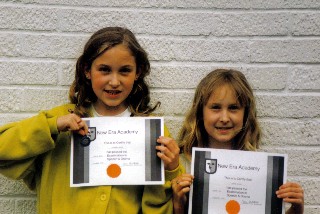How to perform in an Elocution Contest, festival or exam
How to perform in an Elocution contests/Speech and Drama Festivals/ LAMDA, New Era, Victoria College, Trinity exams

To do well in an elocution contest, Speech and Drama Festival or Exam you must speak clearly, loudly (without shouting) and with expression. If you can manage to master all three of these skills you will stand a very good chance of doing well. This page has help and information to show you how to perform in an elocution contest or exam and also help for those who have to judge the contests. This page gives help to both competitors and judges.
If you would like to know how to perform in an elocution contest or exam or just for life in general book a lesson with me (£11 for children £20 for adults). I have spaces available on Mondays, Tuesdays, Wednesdays from early morning to late afternoon 5.30am - 5pm UK time.
Taking an Elocution exam in the UK
If you live in the UK and would like to be entered for an elocution exam in verse speaking, Bible reading, acting, Shakespeare, reading aloud for performance or speech and drama I can enter you and teach you all you need to know to pass. You will need to work hard and memorise works (unless reading aloud, in which case you will need to read the whole book that the pieces have come from). I cannot learn words for you so it is your responsibility to do this. Once you have learnt them, or are in the process of learning them I can teach you how to pass. I have entered hundreds of pupils since 1994 so I know what I am doing.
Speaking Up

The first thing you have to do is make sure that the audience can hear you. There's no point in speaking clearly with expression if no one can hear you.
If you open your mouth wider than you do in ordinary everyday speech the sound will be able to get out. Use your jaw to make the correct shape for each sound.
Another thing that will help the audience to hear you is if you speak slowly. It may sound and feel to you as though you are speaking in slow motion but to a listener it will sound good. Make the words longer so that it still flows naturally. Your voice will have to carry quite a long way so the sound needs time to get to the listener. Make sure you finish all of your words, say every 't' and 'd' at the the of the words, particularly in words like 'and', 'but' and 'get'. These are common everyday words so we tend not to give them any thought. Don't let 'bet' be confused with 'bed' or 'beg' - they all begin the same but they have different endings and the audience need to hear those endings.
Pausing
I cannot over emphasize the importance of pausing. This gives you a chance to take a breath and gives your listeners a chance to take in what you have said. Everyone should pause at a comma, full stop, exclamation mark and before an important word or after an important word.
Having said that you need to slow your speech down, you also need variety. Variety of pace, power and pitch. This will make what you say sound interesting and easy to remember.
Expression
Once you've picked out the important words you need to make them stand out. This can be done by pausing, by saying them louder, by using inflection in your voice, by using facial expression and by altering the pitch of your voice.
When you're speaking to an audience make eye contact with the audience and judges from time to time. If you're reading out loud this will be on the important words, if you're speaking from memory this will be most of the time.
Memorizing the words
If you have to speak from memory make learning the words your very first priority. Until you know the words, they cannot become part of you and you will find it very hard to speak with expression if you're still struggling with the words.
How to judge an Elocution Contest
If you have been asked to judge an elocution contest, what should you look for?
- First of all you need to be able to hear the competitor.
- Listen to see if you can hear the words clearly, are they being articulated well. Are the 't' and 'd' sounds being put on the end of the words. Is the competitor using his tongue correctly to get the 'th' sound or does it sound like 'd'?
- How fast are they speaking?
- Is it too fast for you to enjoy the performance?
- Can you catch every word they say, are they giving themselves time to correctly pronounce every word?
These technical skills are important but a person could be technically brilliant and still sound boring. A good speaker needs to sound interesting, they need to be able to put expression into their speech.
- Is the person you are listening to using expression in their voice.
- Are they varying the pitch, pace and power of their voice?
- Are they making the important words stand out?
- Would you like to listen to them read or perform more?
If you have to judge an elocution contest and have a question for me about how to judge it please contact me with your question.